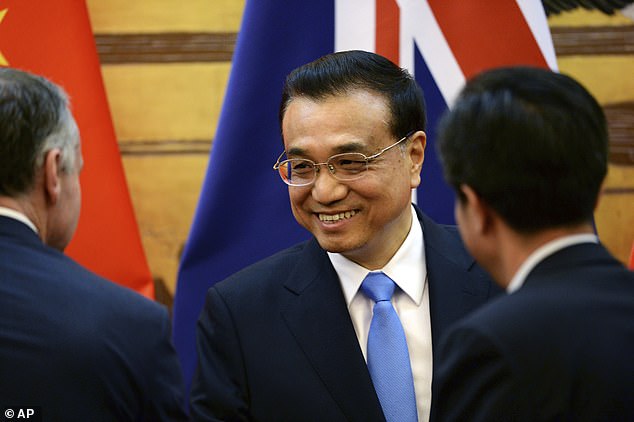Anthony Albanese has remained firm on how he will deal with a more assertive China after Premier Li Keqiang sent the new premier a congratulatory message.
Albanese confirmed he had received a letter from the Chinese prime minister and would respond in due course upon his return to Australia after Tuesday’s Quad meeting in Tokyo.
Australia would seek to work with all countries but would not compromise its values, Albanese said.
“It’s not Australia that has changed, it’s China,” he told reporters after the leaders’ summit.
Chinese Premier Li Keqiang (center) sent new Australian Prime Minister Anthony Albanese a congratulatory letter on his election.
‘It is China that has imposed sanctions on Australia. “There is no justification for doing that and that is why they should be removed.”
As Quad leaders discussed regional security, the Japanese prime minister expressed concern about the ramifications of the Russian invasion of Ukraine.
“We cannot allow the same thing to happen in the Indo-Pacific region,” Fumio Kishida said in his keynote speech.
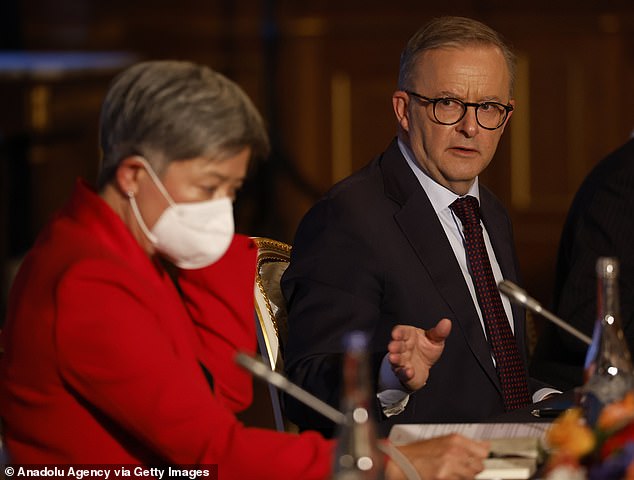
Albanese (right) said Australia will not compromise its values as Foreign Minister Penny Wong (left) prepares to visit Fiji on Thursday.
Albanese, along with Kishida, US President Joe Biden and Indian Prime Minister Narendra Modi, outlined new measures to keep the Indo-Pacific “free and open,” but did not expressly name China in the official statement.
“We will continue to act together decisively to promote these principles in the region and beyond,” the official statement stated.
“We reaffirm our determination to defend the rules-based international order in which countries are free from all forms of military, economic and political coercion.”
The reading also included measures to counter Chinese influence in the region, including $50 billion in assistance and infrastructure investment in the Indo-Pacific over the next five years to help countries with “debt problems.”
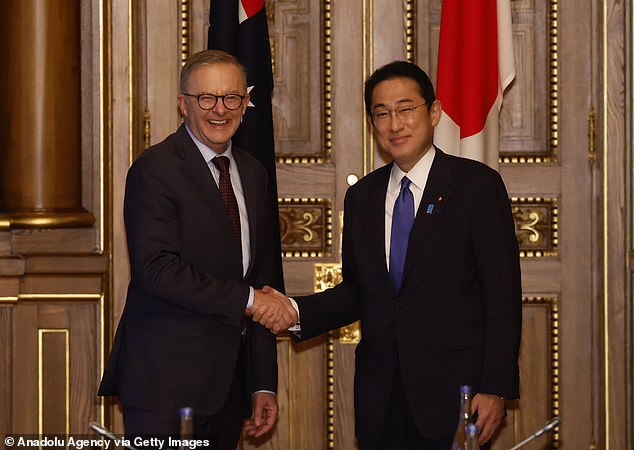
Japanese Prime Minister Fumio Kishida (right) and Albanese (left) outlined new measures to keep the Indo-Pacific “free and open,” but did not expressly name China in the official statement during the Quad Summit in Japan on Tuesday .
Cybersecurity and the protection of critical infrastructure systems in the Indo-Pacific will also be addressed through more information sharing and capacity building programs for the region.
But Albanese’s decision could be forced sooner than he thought, with Chinese Foreign Minister Wang Yi arriving in the Solomon Islands this week to formally sign a new security pact.
Yi will then visit seven other Pacific island nations, including Fiji, Tonga, East Timor, Papua New Guinea and Vanuatu.
But the Australian government appears to be leading the way, with Foreign Affairs Minister Penny Wong due to land in Fiji on Thursday.
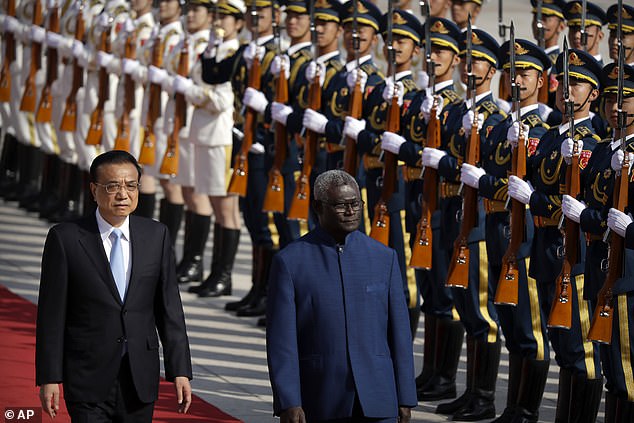
A new security agreement between China and the Solomon Islands will be formally signed later this week (left: Chinese Premier Li Keqiang, right: Solomon Islands Prime Minister Manasseh Sogavare)
The incoming Labor government says it will look to build relationships across the Pacific and Asia with a renewed focus on the region.
“We want peace and stability in the region,” the prime minister said.
“The best way to achieve this is through proper diplomatic processes, ensuring that we build relationships in the region and act positively.”
But Albanese also reiterated that a list of 14 demands by the Chinese government to restore the bilateral relationship was “completely inappropriate.”
“We reject them all,” he said.
The comments came after China’s prime minister said Beijing is keen to boost bilateral relations with Canberra.
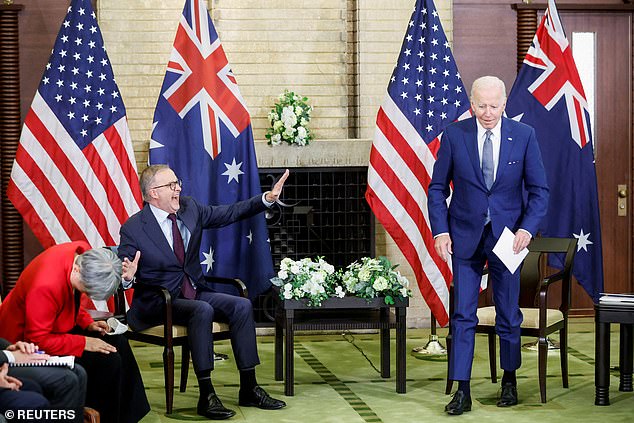
On Tuesday, US President Joe Biden (R) said the US would intervene militarily if China invaded the island, while Albanese (L) reiterated the importance of Australia’s alliance with the US.
“The sound and stable development of China-Australia relationship conforms to the fundamental interests and common aspirations of the two peoples and is also conducive to peace, stability, development and prosperity in the Asia-Pacific region.” , Mr. Li reported the China Daily. as he says he.
Australia’s relationship with the regional power has deteriorated in recent years, with Beijing refusing to heed calls from the outgoing Morrison government and blocking imports of a range of goods despite a free trade deal between the two countries.
China remains Australia’s largest trading partner, especially through iron ore shipments.
Tensions also rose after US President Joe Biden warned Beijing not to interfere with Taiwan, saying the US would intervene militarily.
Albanese maintained that Australia’s position had not changed after President Biden said his comments were in line with the established US position of strategic ambiguity.
‘Our position is that there should be no unilateral change to the status quo. Our position has not changed,” he stated.

